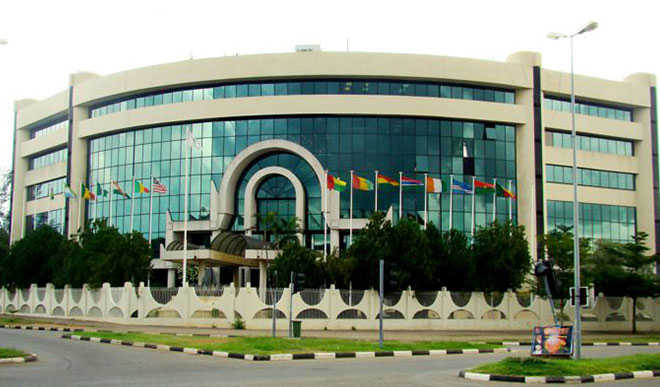Mr Gbenga Obideyi, Director of Trade, Economic Community of West African States (ECOWAS) has called on member states to sign the African Continental Free Trade Agreement (AfCFTA) to ensure the preservation of the ECOWAS acquis.
Obideyi made the call in Abuja on Thursday during a national validation workshop on the study conducted by the National Association of Nigerian Traders (NANTS) on Articulating Nigeria’s Agricultural Trade Strategies for the AfCFTA Negotiation.
The EU’s ‘acquis’ is the body of common rights and obligations that are binding on all EU countries, as EU Members.
“For the ECOWAS region, 13 out of the 15 Member States have so far signed the AfCFTA Agreement and eight of our Member States have also ratified it.
“ Nigeria and Benin are the only Member States yet to sign the agreement and for very good reasons.
“We have urged our Member States yet to sign and ratify to do so to ensure the preservation of the ECOWAS obligations and that the AfCFTA is coherent with regional advancements,’’ he said.
According to him, as of March 28, 52 African States have signed the agreement with the remainder of only three African countries
Obideyi said that at the recently concluded African Union Summit in Addis Ababa in February 2019, the Summit endorsed the agreements reached by the African Ministers of Trade in Cairo Egypt in December 2018.
According to him, the products to be excluded from liberalisation will represent no more than three per cent of tariff lines and sensitive products will represent no more than seven per cent of tariff lines.
“The AfCFTA agreement may have far reaching implications for the ECOWAS trade objectives, including the Common External Tariff and the ECOWAS Trade Liberalisation Scheme (ETLS) and other services regulations.
‘Stakeholders in the different Member States need to be briefed on the implications of the 3/7 designation for sensitive products and list of exclusions on the ECOWAS trade objective.
”I am glad NANTS has taken this further by undertaking a study on the potential implications for the agricultural sector,’’ he said.
Obideyi said that ECOWAS was currently assisting Member States to present a common Market Access Offer that would reflect the aspirations of all countries in the region.
He said that ECOWAS had received inputs from Nigeria and was waiting for inputs from other Member States.
Obideyi said that all ECOWAS’s products at 35 per cent Common External Tariff (CET), numbering about 130 tariff lines would all be excluded.
According to him, pharmaceutical products are of special concern for Nigeria, so they will also be considered for exclusion.
“ Currently, at the AU level, we are developing mechanisms for compensation and are also discussing guidelines for infant industry protection,’’ he said.
Mr Ken Ukaoha, President, NANTS said that there was no doubt that the agreement has potentials to handhold Africans and particularly Micro, Small and Medium Enterprises (MSMEs) out of the poverty bracket.
Ukaoha said the agreement also has the capacity to increase access to market that are larger than the colonially imposed national boundaries and demarcations.
He said it was speculated that the agreement can create up to 20 million to 30 million jobs needed each year to accommodate the waves of young people entering the labour market.
Ukaoha said that at the same time it would boost intra-African trade from 15 per cent to at least 25 per cent within the next ten years.
He said the negotiators of the agreement must be prepared to navigate into the country’s future only through evidence-based instruments.
Ukaoha said the negotiators must be readily informed and adequately equipped with empirical and fact-based analysis that clearly forecast the future of the nation from the point of negotiations to post implementation.
“It is so sad and embarrassing that in spite of the fact that some funds may have been made available for the country’s effective preparation for the AFCFTA negotiation, nothing serious has been done.
“We are yet to see serious, available studies conducted with such funds provide and prepare a clearer vision and visibility for the negotiation and to propel wiser decision making,’’ he said.
Ukaoha said that contemporary trade negotiation was highly technical especially given that it anchors majorly on the agenda of economic liberalisation which runs through the entire gamut of economic plan.
He said that negotiation should not be conducted based on guess work or reliance on economic theories even if the country’s representatives come with an important name.
Ukaoha said the association had faced serious criticism for standing up with advocacy and canvassing against Nigeria signing the agreement without adequate analysis of the potential impacts and effective preparation from the country.
He said the association was still on its position that the country should study the agreement properly before signing.
Ukaoha said the association appreciated President Muhammadu Buhari for his patriotic stand in seeing reasons with the association advocacy position and deciding to withhold his signature to the agreement until Nigerians and stakeholders are adequately consulted.
According to him, the country needs to be aware, involved and decide on the potential impacts and technical readiness of the country to fully participate in the AfCFTA that would be beneficial to the country.
Ukaoha said that Nigeria has set the pace for effective consultation and preparation for others to follow and must be strongly commended.
He said that the workshop would review the existing tariff structure and post AfCFTA liberalisation as well as the difference between the two.
Ukaoha said the workshop would also develop criteria for exclusion of the sensitive products in terms of tariff lines.
He said that the workshop would determine sensitive products by tariff lines that require short and immediate run protection from market share erosion due to potential import surge among others.




